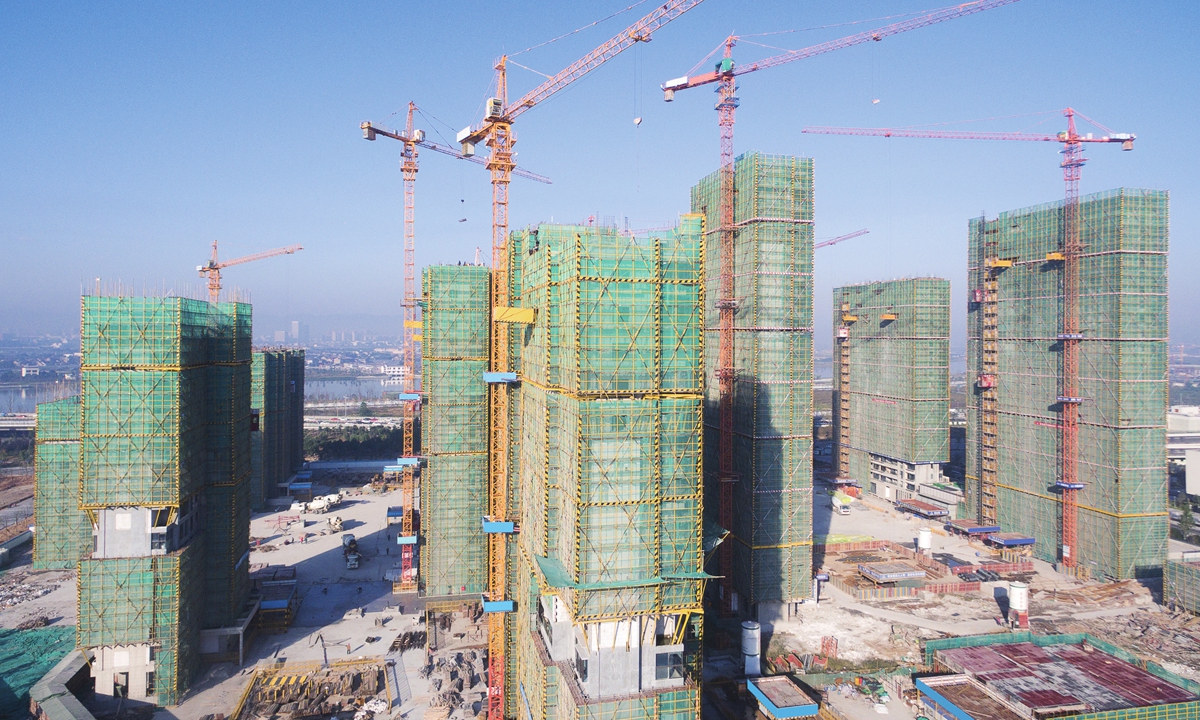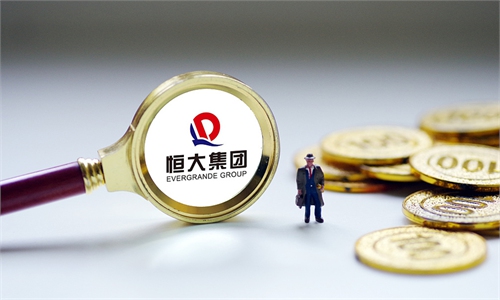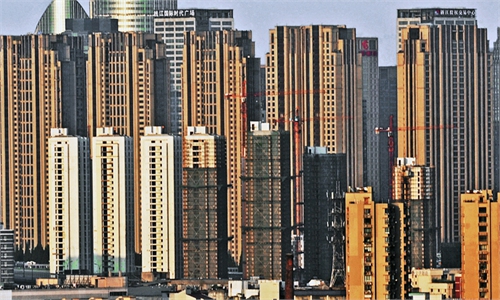Chinese cities come out with measures to support home sales
Real estate set for soft landing

Buildings under construction in Hangzhou, capital of East China's Zhejiang Province Photo: VCG
Local governments across China are trying to curb home prices from a precipitous drop, while encouraging home buyers to buy mortgaged houses to help cash-stricken property developers to quicken home sales, amid the nation's tightened regulation for the housing market.
Since the start of November, about 21 cities have published notices to prevent house prices from falling too far. Some cities have initiated talks with property developers to prevent them from undercutting the market, according to a report published by yicai.com on Saturday.
On November 1, the property bureau of Yongzhou, Central China's Hunan Province, required that property developers not to take advantage of low prices or engage in practices which would disrupt the normal order of real estate market, or they will be punished by regulators.
Except for Shenyang, capital of Northeast China's Liaoning Province, and Kunming, capital of Southwest China's Yunnan Province, these administrative actions to set minimum prices have been mainly undertaken by third- or fourth-tier cities.
Shenyang is being characterized as having two-pronged policies, setting both a ceiling and a floor price for new homes. Local residents are currently not allowed to purchase a third home in an effort to crack down on speculation. Liaoning province has also warned developers against false property advertising.
New home prices in Shenyang, a city of 9 million people, fell in September for the first time since December last year.
"Compared with first- and second-tier cities, the cooling speed of housing markets in third- and fourth-tier cities is accelerating, and at the same time real estate companies are anxious to speed up sales to recoup investment and pay back the lenders, bond-holders and other financial organizations," a real estate expert, who asked to speak on condition of anonymity, told the Global Times on Sunday.
Prices spiral down
Tian Yun, deputy director of the Beijing Economic Operation Association, told the Global Times on Sunday that the recent flare-up of COVID-19 infections in some regions of China is dealing a heavy blow on local consumption. "If home prices, which directly determine the land prices that offered a major revenue source for local governments, drops precipitously, the impact on local economy is hardly affordable," Tian noted.
China's overall property and construction sector contracted in the third quarter for the first time since the start of the coronavirus pandemic, hamstrung by the slump in urban real estate sector.
The growth rate of China's property development investments slowed to 8.8 percent in the January-September from 10.9 percent in the first eight months of the year, data from the National Bureau of Statistics (NBS) showed.
China's new home prices dropped or remained flat across major cities in September from previous month, amid government measures aimed at stabilizing property prices. The price slide compared to a 0.3 percent rise in August. Meanwhile, home prices at the secondhand homes market dropped 0.4 percent, compared with 0.2 percent growth in August, according to data from NBS.
Cash flow crunch
As China has ratcheted up efforts to wean property developers off excess debt levels to ensure a healthy growth of the real estate sector in the coming years, home builders are feeling growing pain of tightened bank lending policy as well as land-buying restrictions.
To ease the crunch of cash shortages, the developers have been on a selling spree of their newly built homes. Some developers are doling out generous discount rates so that they could recoup their investment more quickly, which will help them pay back loans or bonds on time.
Apart from third- and fourth-tier cities, discounts on mortgaged homes have mushroomed in some first- and second-tier cities including Guangzhou, capital of South China's Guangdong Province and Chengdu, capital of Southwest China's Sichuan Province.
In Guangzhou, launches of mortgage-related house projects totaled more than a dozen, according to the yicai.com report. In terms of prices, the discount ranges from hundreds of thousands of yuan to millions of yuan.
Zhang Dawei, chief analyst with the real estate agency Centaline Property, said that many developers are using this scheme to quicken home sales. The move could ease the financial pressure faced by real estate developers to a certain extent.
"Quickening these projects could proportionately alleviate developers' tight cash flow, but it seems to me is not a long-term measure to push the nation's property reform," said Tian.
China's GDP growth this year, which has been widely forecast to reach 8 percent, has created enough room for further deleveraging measures in the real estate sector. "But we need to heed the speed and strength, preventing the tightened regulation measures from squeezing the developers too much so that they can maneuver," Tian said.
Chinese Vice Premier Liu He said in October at 2021 Annual Financial Street Forum that the trend toward a sustainable development of the real estate market will not change with controllable risks, and that property developers will be given access to bank loans.
Meanwhile, long-term property sector operational mechanisms will get scrutinized, Tian said.
Policymakers have decided to pilot property tax levies in selected cities during the coming five years, to evaluate impact of the new policy before proceeding with formal legislation. The new levies could be tested at the end of this year in selected first- and second-tier cities that have hot real estate markets, most likely in Guangdong's Shenzhen, Hangzhou, capital of East China's Zhejiang Province, and the southern island province of Hainan.



